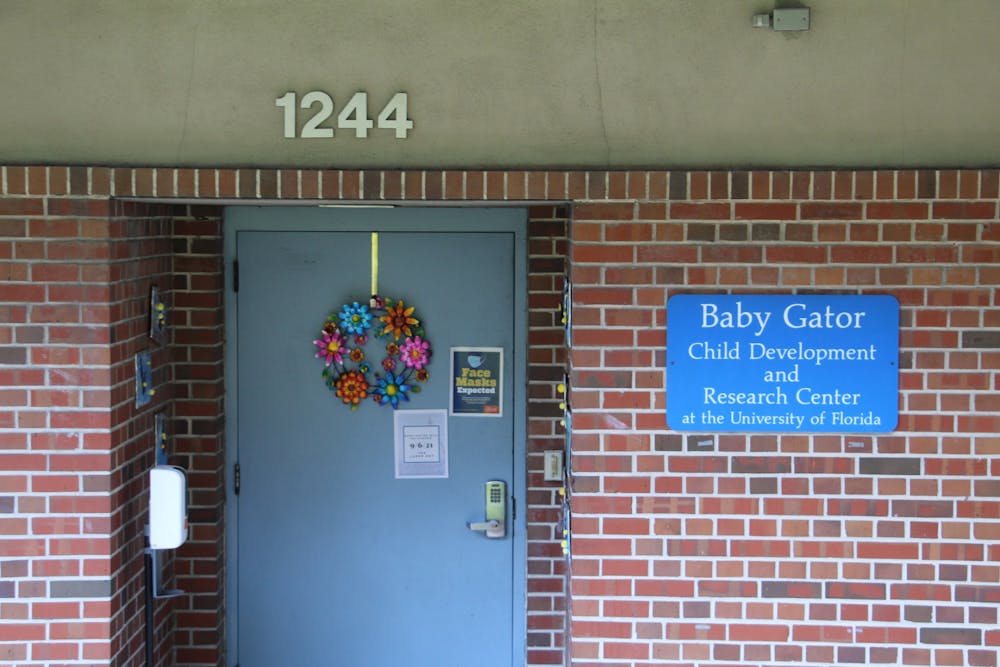Hannah Vander Zanden, 40, predicted she would eventually be exposed to COVID-19 during the school year. What came as a surprise was having to watch her 2-year-old son be quarantined two weeks before the start of the Fall semester.
Over the month of August, dozens of toddlers from Baby Gator — a childcare center for UF affiliates — were sent home for two weeks to quarantine as a result of a COVID-19 outbreak within the school. Parents were left uninformed about the details of the situation and were overwhelmed with their new responsibilities.
Vander Zanden, an assistant biology professor at UF, was one of many parents whose children attended Baby Gator and was sent home to quarantine.
“It's just really frustrating as a parent, when you try to do everything that you can to protect your child, and someone else's choice to mask or vaccinate can jeopardize the health of your child and the rest of your family,” Vander Zanden said.
Vander Zanden said Baby Gator informed her that her child would have to be quarantined because of contact with an infected person on Aug. 21, but staff members did not provide any additional explanation or resources to the parents.
“You can't really ask somebody else to take care of a child that needs to be in quarantine, or to find a babysitter,” she said. “Basically, half of the workday is wiped out the calendar, and I have to try to make up for it in the evenings, and so I definitely haven't been sleeping as much as I would like over the last two weeks, and I've fallen behind.”
Biology graduate student Javiera Rudolph said her frustrations lie beyond the disruptions the quarantine has had on her daily life.
“Baby Gator is not only failing their students and other parents but they're also failing their own staff by not providing clear guidelines and clear protection to them,” she said.
Baby Gator believes masking and vaccines are vital to the safety of students and staff, but they can only echo UF leadership in urging masks and vaccines without enforcing either, UF spokesperson Cynthia Roldán said.
“Practicing physical distancing with young children can be difficult,” Roldán said. “However, Baby Gator’s method of keeping children in the same groups with the same teacher every day helps reduce the risk of exposure to the virus for all.”
Baby Gator had previously implemented several safety procedures into their day-to-day routines, she said. Playgrounds are limited to one classroom at a time, handwashing is encouraged throughout the day and air conditioning systems have been assessed to ensure proper ventilation, she said.
Although upset with having her child exposed to the virus, Andrea Ferreira, UF Portuguese lecturer and mother of 2-year-old Maria, said Baby Gator is doing its best to ensure the safety of students and staff, despite limitations from UF COVID-19 policies.
“I'm very grateful for Baby Gator and the service they provide,” Ferreira said. “I feel for the administration because they are powerless over this issue. The power that they do have is to communicate to parents that they're powerless.”
Contact Maya Erwin at merwin@alligator.org. Follow her on Twitter @mayaerwin3.
Maya is a third-year journalism major at the University of Florida covering university general assignment news for The Alligator. In her free time, Maya loves traveling, spending time with friends and listening to music.






